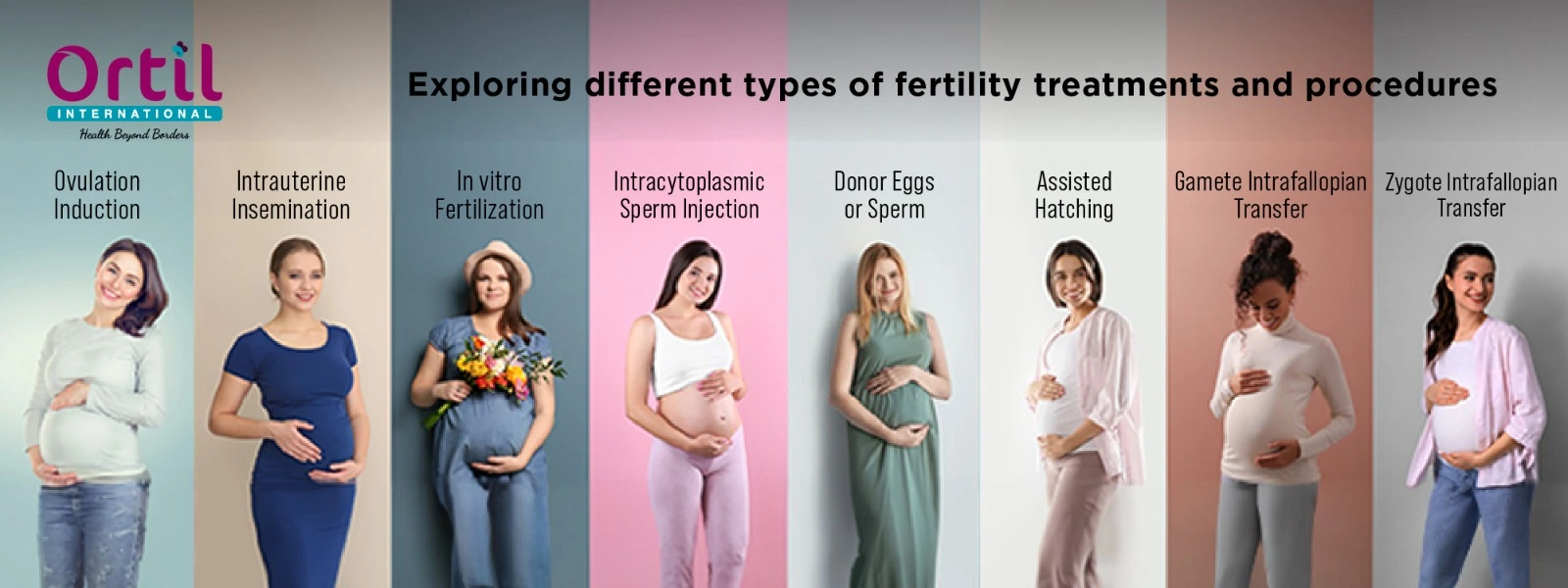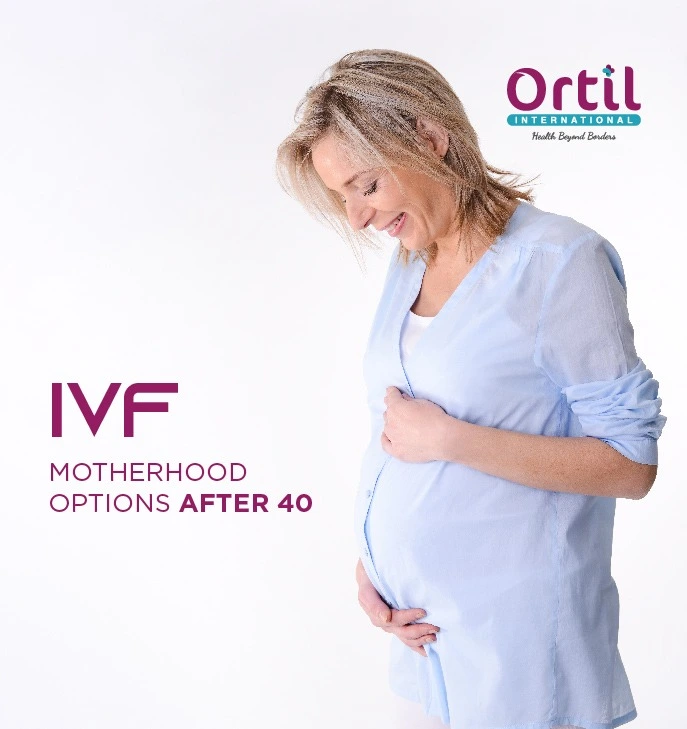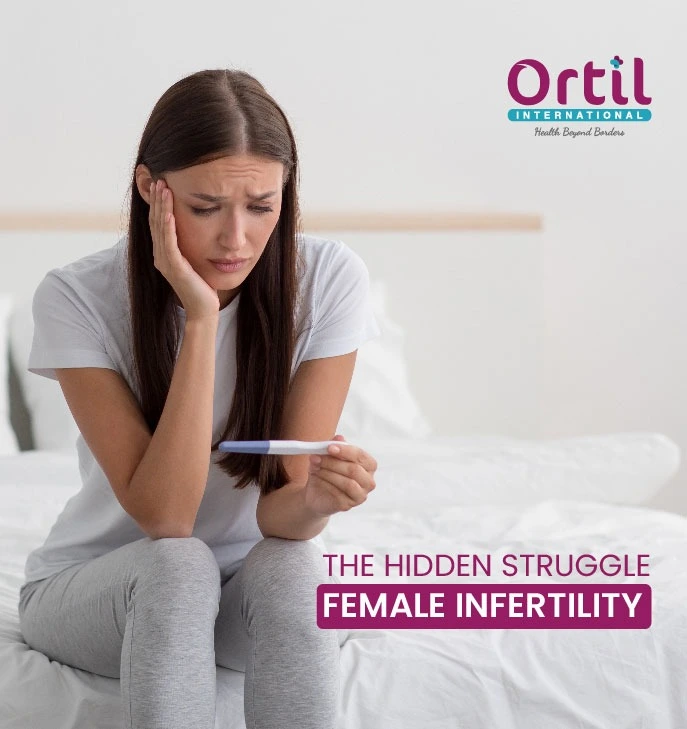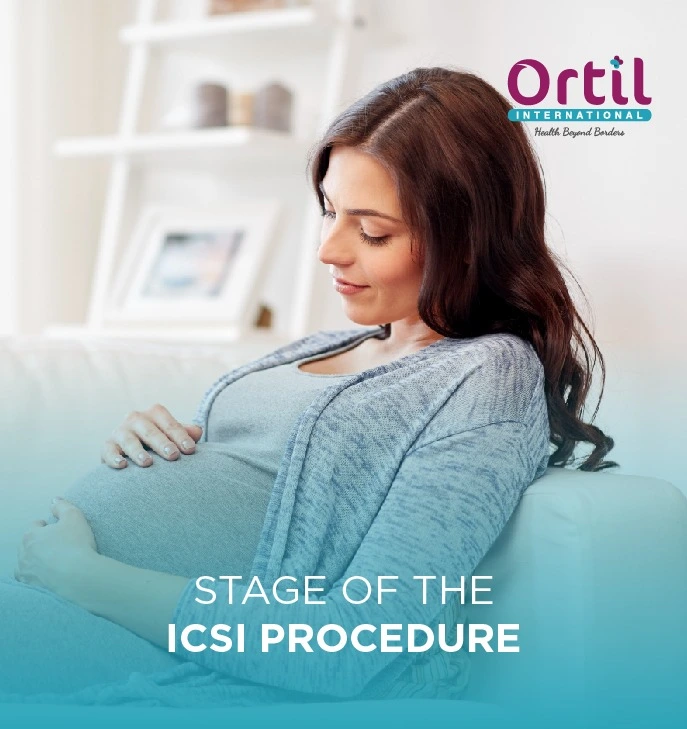Exploring Different Types of Fertility Treatments and Procedures
Patients with problems of fertility have to face challenges during their journey of conceiving a baby. If you are also struggling to get pregnant, then you may need to understand different types of fertility treatments and their procedures that can help you achieve a successful pregnancy. In some complicated patients, it is not possible to conceive a baby by natural means, and those patients have to go under reproductive assistive technology in order to achieve a successful pregnancy.

There are many options in fertility treatments, and each patient gets individualized treatment according to their specific condition and cause of infertility. Let’s explore some of the fertility treatment options that are used in reproductive assistive technology.
What Are Fertility Treatments?
Fertility treatments are the treatments that are used for couples trying to conceive a baby by natural means for a year but are unable to do so. Each couple has a unique cause of infertility, so healthcare professionals use individualized approaches to increase the success of each fertility treatment.
If you are facing infertility and looking for some treatment options to conceive, then there are many fertility treatments that can increase your chances of having a baby. The most suitable option for you depends on your individual circumstances and the underlying cause of your infertility.
Depending on the situation, treatment may be necessary for one partner or both, and sometimes, a combination of treatments is used. Fertility treatments involve medications, injections, and surgical procedures.
Who Needs a Fertility Treatment?
Fertility treatments are for those patients who are facing challenges to conceive a baby naturally. The cause of infertility can be due to male or female infertility. Each fertility treatment is used according to the cause of infertility. You may need fertility treatment if you and your partner are suffering from any of the following conditions:
Male Infertility
- Varicocele
- Low sperm count
- Poor sperm motility
- Abnormal sperm morphology
- Erectile dysfunction
- Ejaculation disorders
- Hormonal imbalances
- Genetic factors
- Testicular injury or trauma
- Infections
- Certain medications or treatments (e.g., chemotherapy)
- Environmental factors (e.g., exposure to toxins or radiation)
- Lifestyle factors (e.g., smoking, excessive alcohol consumption, or drug use)
- Age-related decline in sperm quality and quantity.
Female Infertility
- Ovulation disorders (e.g., Polycystic Ovary Syndrome or PCOS)
- Fallopian tube blockage or damage
- Uterine abnormalities
- Endometriosis
- Pelvic inflammatory disease (PID)
- Age-related decline in egg quality and quantity
- Hormonal imbalances
- Premature ovarian insufficiency
- Lack of ovulation
- Autoimmune disorders affecting fertility
- Genetic disorders affecting reproductive organs
- Obesity or underweight
- Chronic illnesses (e.g., diabetes or cancer)
- Lifestyle factors (e.g., smoking, excessive alcohol consumption, or drug use)
- Stress or psychological problems
What are the Types of Fertility Treatments
Some of the types of fertility treatments that are used in the healthcare system are listed below:
- Intrauterine Insemination (IUI)
- In Vitro Fertilization (IVF)
- Intracytoplasmic Sperm Injection (ICSI)
- Donor Egg or Sperm IVF
- Fertility Medications
- Embryo Cryopreservation (Embryo Freezing)
Types of Fertility Treatment Procedures
Some types of Fertility Treatment Procedures are defined below:
Intrauterine Insemination (IUI) : Intrauterine insemination involves placing sperm directly into the uterus around the time of ovulation. This procedure is often used when there are issues with sperm count, motility, or cervical mucus quality, as it helps bypass some of these obstacles and increases the chances of sperm reaching and fertilizing the egg.
In Vitro Fertilization (IVF) : IVF is a fertility treatment where eggs are obtained from the female partner and fertilized with sperm in a laboratory. After fertilization, embryos are then transferred into the woman's uterus. IVF is commonly used to treat various causes of infertility, such as blockage of tubes, endometriosis, or unexplained infertility.
Intracytoplasmic Sperm Injection (ICSI) : It is a type of IVF in which a sperm is injected into an egg for the process of fertilization. It is useful in cases of male infertility or when simple IVF is not advisable.
Donor Egg or Sperm IVF : In cases where the eggs of females or the sperm of males are not viable for conception, donor eggs or sperm can be used in the IVF procedure.
Fertility Medications : Medications are one of the fertility options before IVF and are often used to stimulate egg production in women who have irregular or absent ovulation. These medications help to regulate the level of hormones and induce the development and release of eggs from the ovaries.
Embryo Cryopreservation (Embryo Freezing) : Embryo cryopreservation involves freezing and storing embryos created through IVF for future use. This fertility treatment is used when patients have to go for aggressive treatments like radiation therapy.
These procedures are commonly used in fertility treatments to help couples in achieving successful pregnancies.
Conclusion
Types of different fertility treatments are used nowadays that are quite effective in treating infertility, even in the most complicated cases. It is now possible to conceive a baby even in the older age due to the availability of quality fertility treatments and skilled healthcare professionals.
FAQ's of Fertility Treatment Options in India
Is Fertility Treatment Safe?
Yes, fertility treatments are usually safe and do not have any risk of health associated with it.
What are the Most Popular Fertility Treatments?
Medications, IVF (In Vitro Fertilization), IUI (Intrauterine Insemination), and ICSI (Intracytoplasmic Sperm Injection) are the most popular fertility treatments.
What are the Best Fertility Treatments?
IVF and IUI are the best fertility treatments that are used in reproductive assistive technology.
What are the Different Stages of Fertility?
In the menstrual cycle, there are three stages of fertility: the least fertile, the most fertile or ovulation stage, and the post-ovulation stage.
How Successful is Fertility Treatment?
Fertility treatments are very successful and also give positive results in the most complicated situations.


























